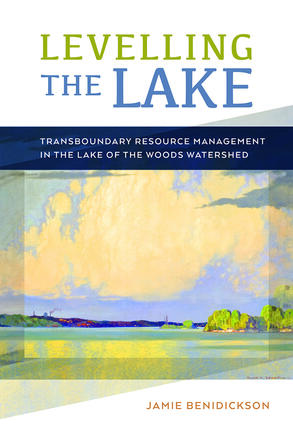
Levelling the Lake
Transboundary Resource Management in the Lake of the Woods Watershed
It’s one thing to live in a watershed. We all do. It’s another to manage one, as Levelling the Lake compellingly demonstrates.
Description
Levelling the Lake explores a century and a half of social, economic, and legal arrangements through which the resources and environment of the Lake of the Woods and Rainy Lake watershed have been both harnessed and harmed. Jamie Benidickson traces the environmental consequences of resource extraction and recreation as well as their impacts on local residents, including Indigenous communities, which encouraged new legal and institutional responses. Assessing the transition from primary resource extraction toward sustainable development, Levelling the Lake also shows how interjurisdictional and transboundary issues continue to play a significant role throughout the region.
Reviews
Benidickson is to be congratulated for both the depth and quality of his research. His understanding of the complex legal and constitutional frameworks which have been imposed upon this region from the 1860s to the present is outstanding. [...]
This is an important work – and a pioneering one at that.
- Jim Mochoruk
This lengthy, erudite, and often (necessarily) dense manuscript details the environmental and social consequences of resource development in numerous sectors: fish, water levels, hydropower, pollution, logging, mining, recreation, etc.
- Daniel Macfarlane
Benidickson shows how the many controversies and challenges—from the early negotiations around leveling the lake, to the Winnipeg water problems, the search for answers to the mercury crisis, and the need for a bridge and road to address the living conditions of the Shoal Lake band, illustrate how essential and necessary multi-agency solutions have been for the problems of the Lake of the Woods basin.
- Francis M. Carroll, St. John’s College, University of Manitoba
Benidickson shows how the many controversies and challenges—from the early negotiations around leveling the lake, to the Winnipeg water problems, the search for answers to the mercury crisis, and the need for a bridge and road to address the living conditions of the Shoal Lake band—illustrate how essential and necessary multi-agency solutions have been for the problems of the Lake of the Woods basin.
- Francis M. Carroll, St. John’s College, University of Manitoba
Jamie Benidickson injects subtle ironic humour throughout [Levelling the Lake], but readers not interested in water or history may find it a long, hard haul … but ultimately this is a rewarding read, perhaps best appreciated as an unfolding story … while subdued in tone, Levelling the Lake offers a valuable analysis on how ecosystems and relations between people can decline from one generation to the next … the book quietly and forcibly puts into relief how long-term economic and social security can be assured only through mutual trust among peoples, along with the proper maintenance and re- establishment of ecological balance.
- Robert Sandford